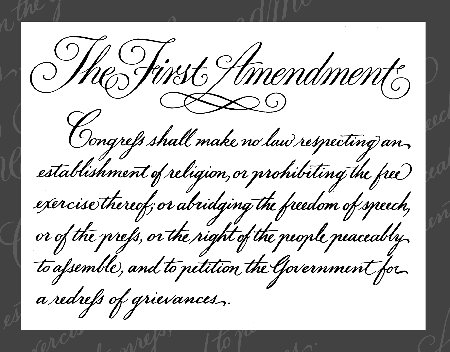Given the recent battles between BART and both the physical and online protesters organized by the group Anonymous, it’s no surprise that the live video feed of this morning’s (Wed/24) BART Board of Directors meeting is down due to “technical difficulties.” But we’ll try to follow-up later with what happened during the special meeting focused on BART’s decision to shut down cell service in an effort to thwart a threatened Aug. 11 protest against the latest fatal shooting by BART police.
In the meantime, we have an interesting letter sent this week to the agency by the American Civil Liberties Union, which cites relevant caselaw and makes it clear that BART exceeded its legal authority in shutting down the system. Unfortunately, BART’s stubborn refusal to acknowledge its mistake has spawned continuing protests that are snarling commutes and – given the trigger-happy nature of some BART cops – unnecessarily creating dangerous situations for everyone.
“The people of our state have the right to speak freely as Americans and as Californians. Our supreme court has long held that cutting off telephone service can infringe upon the right guaranteed by the First Amendment, reasoning that because ‘the right of free speech and press are worthless without effective means of expression, the guarantee extends both to the content of the communication and the means for its dissemination.’ Our state constitution is even more protective of free expression than is the First Amendment,” writes staff attorney Michael T. Risher, citing the 1966 Sokol v. Public Utilities Commission case, among others.
The standard set by the Supreme Court for when speech or networks may be cut off is when it creates “a clear and present danger of imminent violence,” which he argues simply wasn’t the case with a protest that never even materialized. And he notes that the courts take an even more dim view of prior restraint, or the regulation of speech before it even occurs.
“BART cannot properly prevent protestors or other cell-phone users from speaking with one another on the telephone in the first place. Our courts have held that even private telephone carriers, whose actions are not constrained by the First Amendment, cannot shut off service simply because they believe that their customers may be using their services to facilitate crime,” he wrote, citing the 1942 ruling in People v. Brophy. “BART, which is bound to follow both the First Amendment and the California Constitution’s Liberty of Speech clause, must not do so either.”

